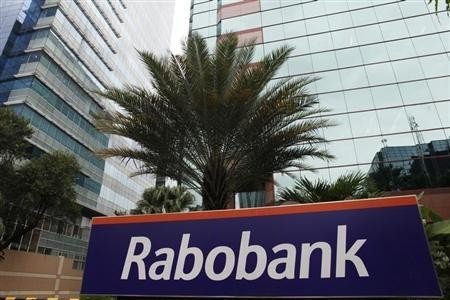Libor Fixing Scandal: US Charges Three Ex-Rabobank Traders

US authorities have charged three former Rabobank traders over allegations that they colluded to rig benchmark interbank lending rates over a five year period.
According to a complaint filed in Manhattan federal court, Britain's Paul Robson, Australia's Paul Thompson and Japan's Tetsuya Motomura were charged with conspiracy to commit wire fraud and bank fraud, as well as two counts of wire fraud, although none of the men are currently in US custody.
US prosecutors allege that the three men and a number of unidentified "others" at Rabobank had "agreed to make false and fraudulent yen Libor submissions for the benefit of their trading positions" between May 2006 to January 2011.
Libor valuations directly influence the value of trillions of dollars of financial deals between banks and other institutions.
The benchmark reference rates are used in euro, US dollar and British sterling over-the-counter (OTC) interest rate derivatives contracts and exchange traded interest rate contracts.
In October last year, Rabobank's chief executive Piet Moerland quit earlier than expected after the Dutch lender was fined €774m (£645m, $1.1bn) by US and other unnamed British and European authorities for its role in the manipulation of the key interbank lending rate Libor.
Out of the total amount, the Dutch lender will pay a €236m criminal fine to the US Department of Justice as Rabobank enters into a deferred prosecution agreement to resolve the charges.
Piet Moerland, who was due to retire in 2014, is being replaced by interim chairman Rinus Minderhoud. Rabobank also revealed that 30 Rabobank employees were engaged in "inappropriate conduct" relating to a scheme to rig benchmark interest rates.
The Dutch lender, a co-operative founded in the late 19th century as a farmers' bank, received a formal request from the Dutch Ministry of Security and Justice, for information linked to the ongoing probes into its possible involvement in the manipulation of Libor, in October 2012.
Rabobank said that it did not sufficiently appreciate the risks associated with the Libor and Euribor submission processes and that it took strong disciplinary action.
© Copyright IBTimes 2025. All rights reserved.






















